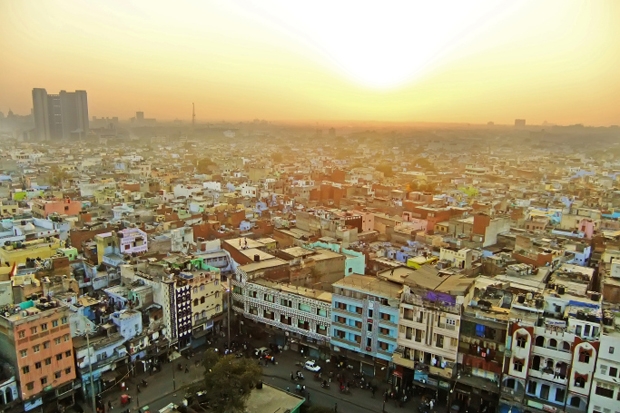Early in the second section of Aatish Taseer’s The Way Things Were we are presented with a striking description of Delhi. The city’s bright bazaars and bald communal gardens, among them ‘the occasional tomb of a forgotten medieval official’, are ‘stitched together with the radial sprawl of Lutyens’s city’. Taseer acknowledges the landscape’s beauty, but buried in his description, with its reference to the British architect who designed much of Delhi during the empire, is the painful and stifling legacy of history. For Taseer, it is an atmosphere that infects Delhi — simultaneously a ‘submerged necropolis’ and a city where ‘the dense cold air, sulphurous and full of particles, closes over old wounds’. Throughout the book the scar-tissue left by colonialism and the agonising poverty of a society in swift, violent transition are felt presences.
The basic narrative is a simple one. Skanda, the Manhattan-dwelling narrator, must return the body of his father Toby, the former Maharaja of Kalasuryaketu, to Delhi and then to his home city for burial. Moving chronologically between four points in time and several generations of a family which Skanda himself has never known, we learn of Toby’s Scottish lineage and his pre-eminence as a Sanskritist. Taseer interlinks many voices with those of his protagonists. As well as Skanda’s parents, the book is filled with characters who stumble from the shadows to disclose shameful family secrets and noxious truths. Character development is subtle and clever, but Taseer has wider questions to explore: he wants to assess the state of Indian society, and to make sense of the country’s schizophrenic relationship with its past.
Taseer’s previous books — a memoir and two well-received novels in three years — were similarly ambitious. The Way Things Were has evidently been written at a slower pace and shows him to be both an accomplished novelist and commentator. In delving beneath the surface, he has vividly exposed the quarrels and quandaries of an India undergoing rapid historical and social change.
Available from the Spectator Bookshop, £14.99 Tel: 08430 600033






Comments